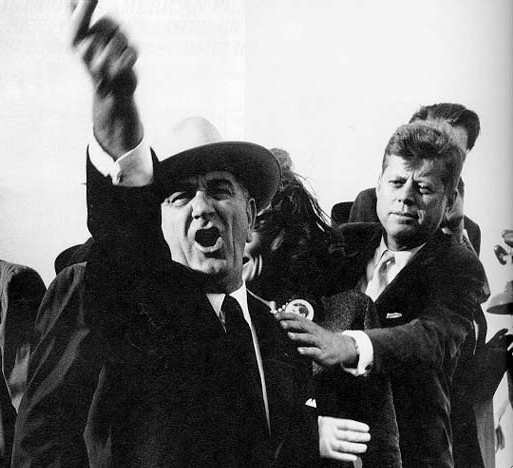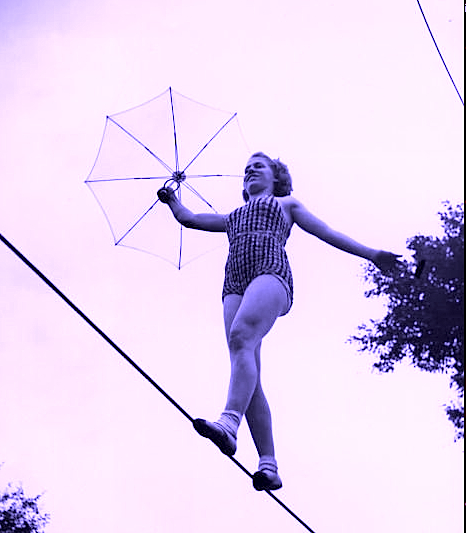
Happy Bastille Day, everyone! Yes, it’s that time of year again: time for me to run through the tricks, tactics, and strategies for constructing and delivering a verbal pitch for a manuscript!
Try to contain your excitement — or at any rate, don’t start cheering until I tell you that this year’s series will cover a broad array of hypotheticals for your preparation and worrying pleasure: formal pitches (the kind writers make appointments at conferences to give), impromptu pitches (the kind writers give when they happen to find themselves seated next to an agent at a conference luncheon, answers to the dreaded question, “So, what do you write?”, what to do after a pitch is successful, the works. I’m even going to be talking about how to transform a great verbal pitch into a fabulous query letter, and vice-versa.
So we’re going to be at it a while. For those of you who are heading out to conferences right away — there’s one in my neck of the woods in a couple of weeks, for instance — and need to pull together a pitch, pronto, I’ve lassoed a set of posts that will walk you through the absolute basics in record time and made them instantly available to the rushed under the evocative title HOW TO WRITE A PITCH AT THE LAST MINUTE. You’ll find it on the category list on the lower right-hand corner of this page.
Don’t say I never did anything for procrastinators. For those of you who have a little more time to kill, let’s take the scenic route.
But soft! Do I hear some grumbling out there? “But Anne,” a few scattered grumblers point out, “I’m a WRITER; I want my manuscript to be judged on its WRITING. Since anyone who has ever sat through a public reading could tell you that there’s no necessary correlation between being able to produce a readable manuscript and being able to talk about it effectively in front of others, why on earth would I want to put myself through such a stressful experience?”
I must admit, oh grumblers, that you make a pretty good point. If you’re like most aspiring writers, the very idea of sitting down across a table from a real, live agent or editor and making a verbal argument in favor of your manuscript’s marketability probably ranks right up there with getting a root canal or leaping in front of a speeding car in order to rescue a wandering toddler: necessary, but not something a sane person free of masochistic tendencies would want to do just for fun.
I can, however, give you two very, very good reasons that every sane aspiring writer should give very serious thought to either signing up for a pitch session or sitting down and coming up with a pitch as if she were. First, a successful pitch allows you to skip the querying stage entirely — in fact, it could be said that a pitch is an in-person query letter, given in an environment that lets the agent or editor hearing it know without your having to say so that you’re a professional enough writer to come to a conference and learn something about your craft. It can give you an edge.
Second, learning to pitch well will help you write better query letters. You’re going to have to read the rest of this series to find out how and why, but you may take my word for now that it’s true.
Third (yes, I know that I said there were only two, but I’m tossing one in for free), if you’re going to make a living as a writer, you will undoubtedly end up having to pitch your work verbally at some point, anyway, if only to your agent before you start a new book project. It’s a professional skill that every career writer is expected to have mastered, so grumbling about it isn’t going to get you out of it. Sorry.
So perhaps the title’s suggestion that you would learn to love doing it was a bit of an exaggeration. Survive it with your dignity intact may be closer to the truth — but hey, in a situation where plenty of writers feel as though they’re wearing a bright red clown nose and speaking in tongues, for all the impact their pitch seems to be having on its intended recipient, doing a basic good job and walking out feeling good about yourself and your book is nothing at which a first-time pitcher should be sneezing.
Bless you.
To that laudable if not especially spectacular end, today we launch into the nitty-gritty of that most dreaded of writerly self-promotional exercises, the verbal pitch, a light-hearted exercise wherein an aspiring writer sits face-to-face with someone who has the power to get his book published — typically, an agent or an editor who keeps glancing at her watch — and tries to convince that intimidating soul to take a gander at some actual pages before making up her mind whether she thinks the book is marketable or not.
What about that might make a normally courageous person blanch and want to run, screaming, toward the nearest large, dark cave, eh?
As is true of writers’ conferences in general, quite a bit of the stress inherent to pitching lies in unrealistic expectations of what might happen — on both the bad and good extremes. Writers tend to waltz into conferences with high expectations and nervous stomach, mentally toting a fairly hefty wish list: to meet the agent of his dreams, who will fall flat on the floor with astonishment at his pitch and sign him on the spot; for an editor at a major publishing house to be so wowed that she snaps up the book practically before the writer finishes speaking, and to be whisked off to New York immediately for literary cocktail parties and glowing adulation. Could the New York Times’ bestseller list and Oprah’s book club be far behind?
It’s a lovely dream, certainly, but this is not what actually happens. Yes, even if you give your pitch perfectly. So strolling into a pitching situation believing that instant contracts are even possible, let alone the norm and the only reasonable standard of conference success, is bound to end in tears.
Call me zany, but I don’t like to see a reader of mine sobbing in a hallway, convinced that he’s blown his one big chance just because an agent actually wants to read a manuscript before flinging her arms around a writer and shoving a contract into his hand. So let’s begin this series with a few cold, hard facts, to set the record straight:
*No credible US agent will sign a writer before having read the book in question, or a proposal for nonfiction. (In other parts of the world, this is not always the case.)
*All of the major U.S. publishing houses have strict policies against acquiring books from unrepresented writers (although a couple do run competitions for that purpose), so even if that editor from Simon & Schuster just adored your pitch, there would be significant structural impediments to his signing you to a three-book contract on the spot.
*Even agented works often circulate for months or more before they are picked up by publishers, so speed of sale alone is not generally considered the best measure of literary success.
*There is generally at least a year-long lapse between the signing of a book contract and when that book appears in bookstores.
Translation: even for writers who actually ARE pitching the next DA VINCI CODE, the process takes a heck of a lot longer than the average conference-goer expects. Even authors of brilliant, super-marketable books do not typically experience the conference fantasy treatment.
At most, a great book well pitched will garner an array of, “Gee, that sounds terrific. Send me the first 50 pages,” requests. Yet even with a flurry of initial enthusiasm, months often pass between initial pitch and requests to represent.
It’s important to realize all of that going in. Otherwise, pitching at a conference will almost inevitably feel like a tremendous letdown.
Or, still worse, like a sight-unseen review of your writing talent. Which, as the grumblers above pointed out, is a trifle bizarre, when you think about it: how precisely could any agent or editor, no matter how gifted, determine whether someone can write without actually reading anything she’s written? Telepathy?
Worst of all, a belief that the truly talented ARE signed and sold within a matter of nanoseconds leads every year to that oh-so-common writerly misstep, rushing home to send out requested materials within a day or so of receiving the request — and realizing only after the fact that since the mad rush to get the manuscript out the door before that agent or editor changed her mind about wanting to see it meant sending it out without reading the submission IN ITS ENTIRETY, IN HARD COPY, and OUT LOUD.
I can sense my long-time readers of this blog shuddering at the ghastly fate that tends to greet such hastily sent-off submissions. (And for those of you seeking guidance in how to put together a submission packet, please see the aptly-named HOW TO PUT TOGETHER A SUBMISSION PACKET category on the list at right before you seal that envelope.)
For those of you who are not yet cringing, let me ask you: how would you feel if you realized only after you’d popped a requested manuscript in the mail that there were four typos on page 1? Or that the margins were the wrong width? Or that you’d forgotten to change your memoir protagonist’s name back to your own after you’d changed it for a blind contest entry?
Oh, good — now everyone’s shuddering. Remember that creepy feeling running up your spine, and don’t even consider sending off requested materials without a thorough review. A request for pages is not going to vanish as soon as the agent forgets your name. You have time to proof the darned thing.
But that didn’t convince all of you, did it? “Yeah, right, Anne,” the complacent say. “I understand that you need to say this so the run-of-the-mill illiterate bothers to spell-check his manuscript before submitting, but I’m a smart person. My manuscript was in good shape before I signed up for the conference. So I can safely ignore what you’ve just said, right?”
Not so fast, smarty-pants: intelligence is no barrier to typos. Don’t believe me? Okay, let me share an anecdote that reality was kind enough to provide just the other day.
I graduated from what is widely considered one of the best universities in the world — fellow alumni would say that it is THE best, but what would you expect them to say? — so the ranks of its alumni are well populated with readers who, like me, don’t consider adherence to the rules of grammar and time-honored ways of spelling things optional. These are folks who know how to use a semicolon and aren’t afraid to use it. So when one of the undergraduate clubs sent out an e-mail the other day, asking alumni to sign up for an online newsletter, I was shocked — shocked! — to see that it was crammed to the gills with what I charitably assumed were typos. Nouns were capitalized that had no business being capitalized; the next-to-last sentence just stopped in the middle.
As I am rather fond of the club in question, I took the time to respond to the e-mail, not so much to point out the vast array of errors unbecoming a Harvard man as to alert undergraduates probably not much accustomed to trying to raise money from crusty old alumni like me to the very, very high probability that educated people would take umbrage at said errors. I said it gently, in the hope that they might actually pay attention, rather than brushing me off, suggesting that perhaps they might want to proofread their next missive before hitting the SEND button.
The undergraduate who took the time to respond (surprisingly politely) did in fact promise to mend the group’s spelling. However (he pointed out in his own defense), four members and two administrative offices had signed off on the wording before it was sent, so they had every reason to believe that it would pass muster.
I knew instantly what had happened — as would, incidentally, any professional reader who has been handling manuscripts within the last ten years. Any guesses? (Hint: the undergraduate was almost certainly telling the truth.)
Give yourself a gold star if you said that each of the proofreaders read the letter on a computer, rather than IN HARD COPY; it’s substantially harder to catch errors that way, since backlighting tempts the human eye to skim. (Which is why, in case you’d been wondering, e-mail recipients so often send back non-responsive answers; it’s just harder to absorb nuances on a screen.) And give yourself seven gold stars if you added that the sentence that ended in the middle was probably the result of someone’s having started to edit the sentence, but getting distracted in the middle of doing it.
Think you’re smarter than the people who collaborated on that message? Even if you are, it’s not enough to make revisions; a sensible submitter proofs requested pages IN HARD COPY, IN THEIR ENTIRETY, and preferably OUT LOUD before mailing them, to catch precisely this type of mistake. Or hitting the SEND key.
But I seem to have digressed, haven’t I? Allow me to veer back to my original point: realistic expectations about what conference success does and does not mean, as well as how it would serve you best to respond to the various contingencies, can save you a lot of grief.
So what would be a realistic set of goals for a conference? An excellent choice would be to embrace the suggestion I made above: use the conference to skip the very annoying and time-consuming querying stage and jump directly to a request to read your manuscript.
What would working toward this goal look like in practice, you ask? Pitching your work to at least one agent who has a successful track record representing books like yours, with an eye to convincing at least one agent ask you to mail a submission would be even better.
As would having an editor who is empowered to pick up new writers ask to see part or all of the book, or pitching to every publishing professional at the conference who deals in your kind of work. And let’s not forget the less marketing-oriented goals, such as learning a great deal from good seminars. (Although, let’s face it, not all conference seminars are equally good; it’s not all that uncommon for speakers to be far, far more interested in pushing their own latest books than providing concrete assistance to those looking to get their own published.)
Or — and too many conference-goers forget to add this to their to-do lists — making connections with other writers, established AND aspiring, who write what you do. Amazing mutual support groups don’t just happen, you know; they are often built over years.
If you can pull any or all of that off, you will have achieved conference success, by my standards. Not as sexy as the fantasy version, I know, but eminently do-able — and definitely worthwhile for your writing career. After all, skipping the querying stage can cut years from your agent search; think of every pitching opportunity as one less raft of a dozen query letters you are going to have to send out.
Feeling a bit better about pitching now? Excellent.
However, truth compels me to mention that your chances of pitching successfully will be SUBSTANTIALLY higher if you do a bit of prep work before you go. But never fear: over the course of this series, I shall be guiding you though the steps you need to take in order to walk in confident and prepared.
Fringe benefit: these steps are very useful to marketing any book, anywhere, anytime. If you invest the time in developing these skills and materials (oh, yes: I’m going to be giving you writing assignments), you will not only be able to pitch your work verbally; you will be able to talk about it like a pro AND transplant your pitch to your query letters.
Don’t tense up. You can do this. But it is going to take some work.
I could sign off for the day at this point, but since I was too busy to post yesterday, let’s get started right away: the first step to a successful pitch is to understand your book’s market appeal.
Hey, I told you it wasn’t going to be easy, but don’t tense up. Who is your target reader, and why will your book, out of the tens of thousands a good agent will see this year, satisfy that reader like nothing else currently on the market? In order to either pitch or query your work successfully, you’re going to want to come up with at least provisional answers to these questions.
The second step to a successful pitch, as for a successful query, is to be familiar with the work of the person to whom you will be pitching. Find out what that agent has sold lately; find out what that editor has bought. Find out, in short, who at the conference would be receptive to you and your book, so that you may know which to approach and pitch.
This will involve some research on your part — which is why I am mentioning this at the BEGINNING of this series, and not toward its end. If you’ve got a conference coming up, or are thinking about signing up for one, you’re going to want to get started as soon as possible figuring out which of the attending agents would be worth your time to track down for a hallway pitch, if you can’t obtain a pitching appointment.
In response to that indignant gasp: not being able to land a formal appointment with any given agent attending a conference is not all that uncommon an eventuality. Conference organizers usually do their best, but attendees don’t always get assigned to the agent who’s the best fit for the manuscripts they are pitching. (Again, sorry to be the one to break that to you.)
Passive writers allow that to prevent them from pitching to the right agent — but my readers are more proactive than that, aren’t they?
See why I’m planning to give you tips not only on pitching within a formal meeting, but whenever you happen to be able to buttonhole the agent of your dreams?
“But Anne,” I hear those of you clutching registration forms protest, “I understand doing the prep work if I have a plethora of conferences from which to select, but I’m already registered for my local one. Since I’ve already been assigned a pitch appointment and I already know that I’m too shy to walk up to the dais after the agents’ forum, why should I bother checking up on all of the agents who might be attending?”
Well, for a couple of reasons. First, any book could be pitched in a number of different ways — and since the goal of pitching is not absolute uniformity between every pitch attempt, but rather to garner a request for pages, it makes a heck of a lot of sense to tailor your pitch to the agent who happens to be listening to it at any given moment, doesn’t it?
And no, I have absolutely no idea why conference literature so often tells potential attendees the exact opposite. I’ll be dealing with the one-size-fits-all pitch concept next week.
For now, suffice it to say that all three pictures above are from the same negative. You probably have a favorite among them; so do I. So would an agent. But they’re all the same angle on the same rose. The only difference is presentation.
Seem cryptic? Trust me, within a couple of weeks, it will seem downright obvious.
The other reason to do some background research on the agents to whom you may be pitching is, as I mentioned, that it’s far from uncommon for writers to be assigned to pitch to agents who do not represent their kinds of books at all. Which means, practically inevitably, that the pitch cannot end in a request for pages.
Yes, you read that correctly. Sit down and breathe deeply until that feeling of dizziness passes.
As anyone who has ever endured the agony of a mismatched pitch appointment can tell you, if your book falls outside the agent or editor’s area of preference, it doesn’t matter how good your pitch is: they will stop you as soon as they figure out that your book is categorically not for them. No amount of argument is going to help you at that point, so advance research is a very, very good idea, if only so you can try frantically to switch appointments with another writer.
I know, I know: it’s kind of cruel, isn’t it? But in fairness, conference organizers very frequently do not have enough information about prospective attendees to make a good match; most of the time, they simply rely upon the writers’ expressed preferences or — sacre bleu! — assign appointments randomly.
This means, unfortunately, that it is up to the conference attendee to check up on the agents and editors, over and above their blurbs in the conference program. Even those bear double-checking: as my long-time readers already know, the blurb agents and editors write about themselves is not always the most reliable indicator of the type of work they represent. It’s not that they’re trying to be misleading, of course; most just reuse their standard bio blurbs, which tend not to be updated all that often.
So it’s worth your while to check the agents’ websites, standard agents’ guides (for some tips on how to use these, please consult the AGENCY GUIDES category at right). Preditors and Editors, the Absolute Write water cooler, and anywhere else that you would normally go to check out an agent you were planning to query. You don’t need to be able to write a 500-page biography for each of these people, but you absolutely do what they’re representing these days.
These days being the operative term: while agents frequently list the better-known books they’ve represented in those little blurbs in the conference guide, they don’t necessarily update those blurbs every time they use them. (Also true of the preferences listed in agents’ guides, by the way.) And even if they did, the market changes far too fast for blurbs usually submitted months before the conference to reflect what an agent is looking to represent NOW.
I hear you groaning: yes, this IS every bit as much work as finding an agent to query. But you don’t want to end up pitching to the wrong agent, do you?
When you’re doing your research, do be aware that since there is usually a significant time lag between when an agent signs an author and when the book hits the shelves (see above), it may be difficult to track down client lists for some agents. This does not necessarily mean that they are not active. The Publishers Marketplace database tracks sales as they happen AND provides client lists, so it’s a great place to check. This site does require a subscription ($20/month), so you might want to round up some of your writing friends and pool the expense.
If you can’t find evidence that the agent to whom you are assigned to pitch is actively representing your kind of book, don’t be afraid to ask to switch appointments. Most of the time, conference organizers will do their best honor such requests — but they’ll usually be happier about it if you can suggest an alternative agent for an appointment.
Yet another reason that — wait for it — it’s an excellent idea to check out ALL of the agents scheduled to attend a conference (there’s usually a list on the conference’s website), not just to one to whom you’ve been assigned. Ideally, you will want to try to pitch to anyone who might conceivably be a reasonable fit. And if none of the scheduled agents represent your kind of book, you should think very seriously about taking your conference dollars elsewhere.
Yes, having to do this level of background research is kind of a pain, but if it saves you even one wasted pitch, it’s definitely worth it. The more information you have, the more likely you are to find your best fit. Doing your homework maximizes the probability that you will be pitching to someone who can help you get published — and not someone who will stop you three sentences in to say, “I’m sorry, I don’t represent that kind of book.”
Remember, not all agents are the same, any more than all editors are (of which more tomorrow); they have both professional specialties and personal preferences. It doesn’t make any more sense to pitch sensitive coming-of-age literary fiction to an agent who concentrates primarily on thrillers than it does to query a NF agency with a novel, does it?
Do those of you who have never pitched before feel as though you’ve just fallen into very, very deep water? Not to worry: you’ll feel much less disoriented in the days to come. Which is to say: PLEASE don’t be too hard on yourself if your learning curve is a bit sharp throughout this series. After all, no one is born knowing how to market a book.
Keep those expectations realistic and those hopes high. You can do this, honest. And, of course, keep up the good work!

























